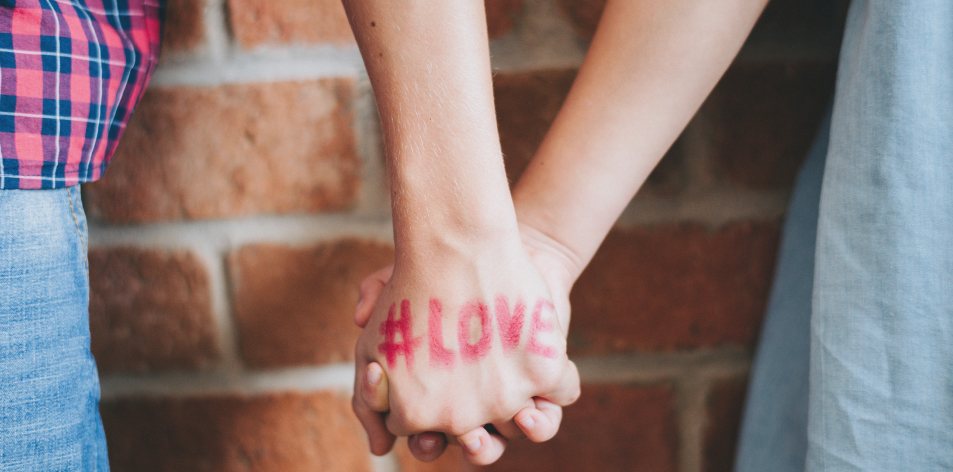
Does Unconditional Love Exist? – By Reshma
Is Unconditional Love Real?
Wayne Dyer said, “there is no greater power in heaven or earth than pure unconditional love”.
Many people consider ‘unconditional love’ to be a myth or fantasy that has been a quest for mankind.
And yet there are others who believe that there is nothing more real than unconditional love.
The literal meaning of unconditional = without conditions.
But does this translate into reality at all?
We all want to be loved and accepted for who we are and what we represent, and maybe even think that we are also capable of loving and giving selflessly.
But the truth is, unconditional love may set us up for agony when the idea (of this kind of love) doesn’t match the reality of how hard it really is, to love selflessly.
Just like our children need it, we as adults also desire safe relationships loaded with stable love and acceptance. We want to believe that our partner will be there for us whenever we need them. But if we focus entirely on one person to fulfil all our needs (belonging, meaning, acceptance), we may be expecting certain things that one individual may not be able to provide.
Unrealistic if you ask me.
Pushed to our limits, we may be acting like the narcissistic child: “Give me attention, give me love, give me what I need, no matter how I treat you.” This entitlement can lead us to blame and anger, especially when our needs clash
with that of our partner’s.
Therefore, love in all its maturity, can only survive under certain conditions. If a plant needs plenty of sunlight, nutrition and water to grow, how can we expect love to flourish in a hostile environment?
By being mutual.
Love does not mean that we have to accept the other person always, and comply with what they want all the time. Immaturity sets in when we begin to feel the burden of satisfying every damn need, calming every pain, and accepting every request. And then beating ourselves up for not being spiritually evolved if we fall short of all of this.
So what is the challenge?
The challenge is to be responsive to our mate while taking care of our own needs at the same time. This means being able to say ‘no’, ‘yes’ and ‘maybe’ and not feeling obligated to say ‘yes’ all the time. Rather it means denying a request with respect and awareness instead of being cold and harsh.
Mature love also requires slowing down.
It means paying attention to the space between us and our partner – being sensitive, respectful and in tune with each other’s feelings and bodies, to also allow ourselves to be affected by what our partner wants, however pleasant or unpleasant
it may seem.
Or it means meeting half way.
If we don’t want to indulge in a demand we should feel okay enough to express our concerns and fears so that we can understand and respond to each other, and work on how our needs can interact together.
The key lies in the process of discussing, sharing and being compassionate to each other’s inner world, which is more far-reaching than the outcome.
If we can be sure that an occasional disappointment won’t break our partner when we are not keen on accommodating, as well as being certain that being true to ourselves won’t crack the relationship (as long as we are being kind about it), then rest assured that we have a healthy partnership going.
What ‘unconditional love’ fails to recognise is the importance of building tolerance to frustrations when things don’t go our way. If we have the capacity to calm down, or soothe ourselves (even when the other person is not emotionally available to comfort you), then we can address issues in our relationship from a position of strength.
This cannot be done without having bold self-awareness and honesty. When we say “no’ are we doing it to get even? Are we manifesting a power struggle? Are we projecting stored hurts and resentments of the past? Do we want our partner to feel the pain of some past denial or event?
A healthy connection calls for us to know our feelings, motivations and limits. It requires us to have an in-depth understanding of our strengths and wisdom from our experiences, to make changes to past patterns and to comfort ourselves when needed.
Remember, the greatest gift we can give our partner is the gift of our own self growth. The more we know who we are, and develop both the skill and courage to communicate with our loved one, the more we can build on our trust and love for that person.
Mature love calls for these things:
Open honest communication.
Offering space non-defensively, listening and considering each other’s feelings seriously and respectfully.
Acting out of love and care, not by duty or obligation.
Working skilfully through little differences.
Sharing power. We don’t always get what we want.
Therefore, it may be foolish to love someone unconditionally if they treat us poorly at the cost of depression or suicide, where you are constantly trying to prove your love in a state of fear.
By Reshma Raju
M.Sc Psychology,
Certified Women’s Health Coach (USA)
Do you need relationship advice? Tell us your story… leave a comment below or Facebook Message us using the messenger icon in the corner of your screen and our expert Reshma will get back to you!


